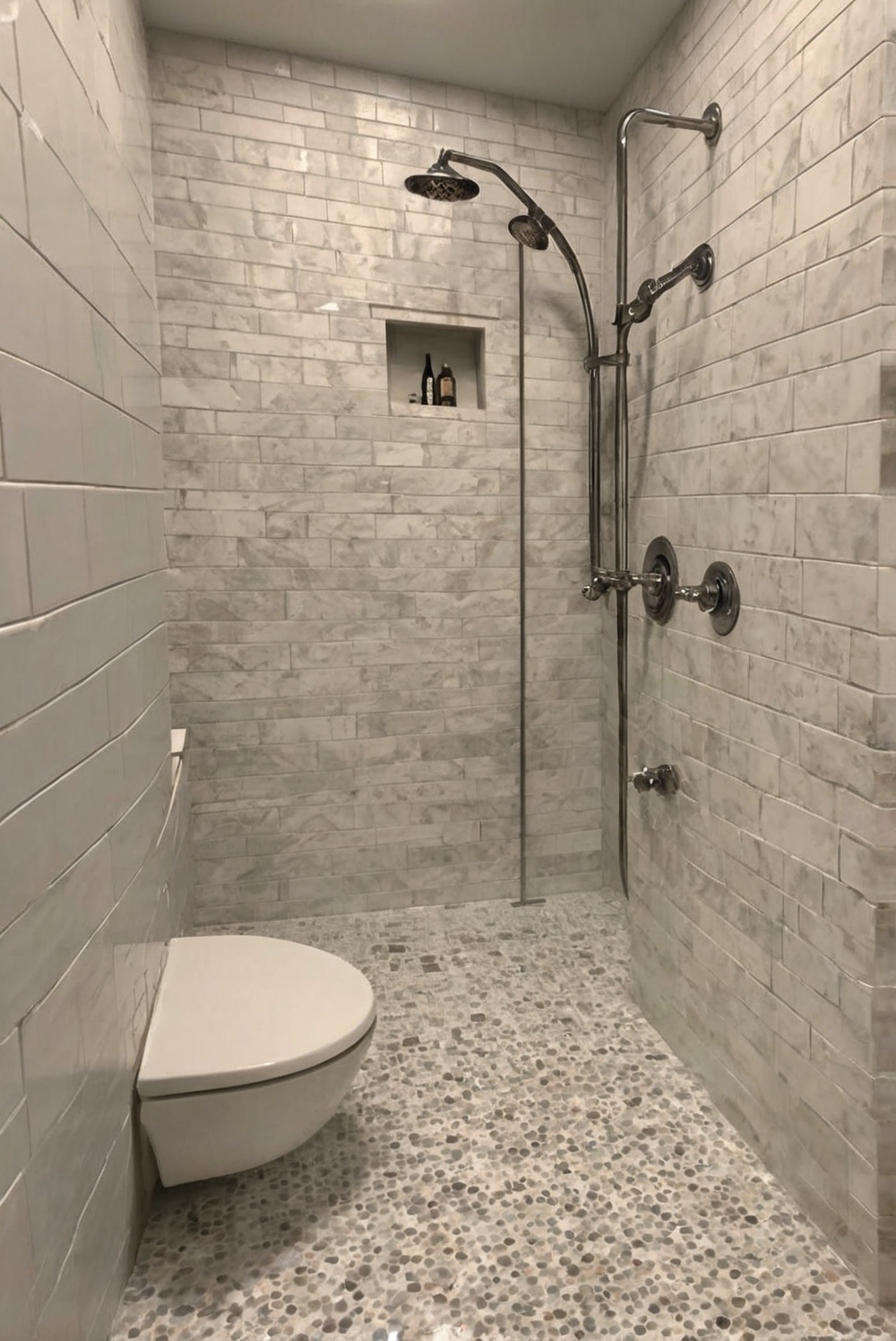In this daily interior designer routine, find the best slip-resistant tiles for your shower floor to enhance both safety and style.
How do I choose slip-resistant tiles for my shower floor?
In selecting slip-resistant tiles for your shower floor, consider the following factors:
1. Texture: Opt for tiles with a rough or textured surface to provide traction and prevent slipping.
2. Coefficient of Friction (COF): Look for tiles with a COF of at least 0.60 to ensure they are slip-resistant.
3. Porosity: Choose tiles that are not too porous to prevent water absorption and mold growth.
4. Size and Grout Lines: Larger tiles with minimal grout lines reduce the chances of slipping.
5. Material: Ceramic, porcelain, or natural stone tiles are ideal for shower floors due to their durability and slip-resistant properties.
Ensuring your shower floor tiles are slip-resistant is crucial for safety in your home interior design.
What are slip-resistant tiles and why are they important?
Slip-resistant tiles are specially designed tiles that provide better traction and grip, reducing the risk of slipping and falling. They are crucial for areas like shower floors where water and soap can make surfaces slippery. Choosing slip-resistant tiles for your shower floor is essential to ensure safety and prevent accidents.
What factors should I consider when choosing slip-resistant tiles for my shower floor?
When selecting slip-resistant tiles for your shower floor, consider the following factors:
– **Coefficient of friction:** Look for tiles with a higher coefficient of friction, as they offer better slip resistance.
– **Texture:** Opt for tiles with a textured surface, such as matte or honed finishes, which provide more traction.
– **Porosity:** Choose tiles with low porosity to prevent water absorption and mold growth.
– **Size and shape:** Larger tiles with fewer grout lines can reduce the risk of tripping and offer a more stable surface.
– **Material:** Select tiles made from materials like porcelain or ceramic, which are durable and moisture-resistant.
How can I test the slip resistance of tiles for my shower floor?
To test the slip resistance of tiles for your shower floor, you can use a device called a tribometer. This tool measures the coefficient of friction of a surface and provides a reliable indication of its slip resistance. Alternatively, you can perform a simple test by wetting the tile surface and walking on it to see how slippery it feels.
What are the benefits of choosing slip-resistant tiles for your shower floor?
By selecting slip-resistant tiles for your shower floor, you can:
– **Enhance safety:** Reduce the risk of slipping and falling, especially in wet and soapy conditions.
– **Improve durability:** Ensure that your tiles withstand daily use and maintain their slip resistance over time.
– **Enhance aesthetics:** Choose from a variety of colors, patterns, and textures to create a stylish and functional shower space.
What are some popular types of slip-resistant tiles for shower floors?
Some popular types of slip-resistant tiles for shower floors include:
– **Porcelain tiles:** Known for their durability and water resistance, porcelain tiles come in various finishes and styles.
– **Ceramic tiles:** Available in a wide range of colors and designs, ceramic tiles are a cost-effective option for shower floors.
– **Natural stone tiles:** Options like slate, travertine, and marble offer a luxurious look with natural slip-resistant properties.
– **Textured mosaic tiles:** Small mosaic tiles with textured surfaces provide excellent traction and can be customized to suit your style preferences.
In conclusion, choosing slip-resistant tiles for your shower floor is crucial for ensuring safety and preventing accidents. Consider factors like coefficient of friction, texture, porosity, size and shape, and material when selecting tiles. Test the slip resistance of tiles using a tribometer or a simple wet test. By choosing slip-resistant tiles, you can enhance safety, durability, and aesthetics in your shower space. Explore popular options like porcelain, ceramic, natural stone, and textured mosaic tiles to find the perfect fit for your needs.

